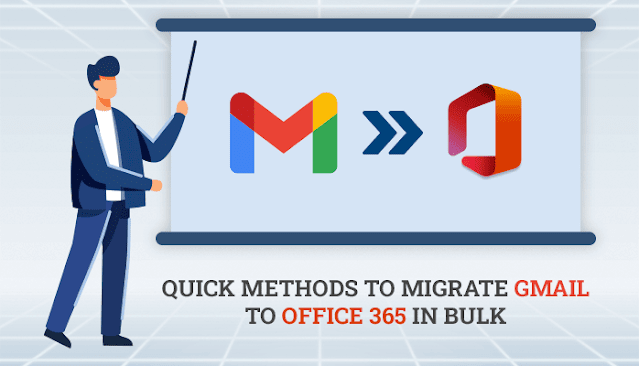6 Social Media Mistakes You’re Making and How to Fix 2022
1: You Have the Wrong Links
Imagine that you're requested to present a talk on what's coming for Microsoft Office (with a chance to market some Microsoft training classes). There are two alternatives. There is the option of having a massive auditorium with more than 10,000 people or smaller ones that only hold 500 people. If you're not afraid of public speaking, then you most likely want the auditorium with the largest capacity since it will provide an abundance of opportunities for sales, wouldn't it?
But what if you found out that the large auditorium is filled with primarily artists and students? The smaller one is filled with business owners who rely on Microsoft Office. Where do you think you can get the best sales opportunities?
This is a common occurrence on social media. We are connected to a large number of people on specific social networks and get incredibly excited when we have a large number of followers and friends when we announce something and are left wondering what the reason is for the lack of response. It's not just the number of people you're connected to that make the difference; it's the number of people interested in your field that you're bound to.
If you're looking for new connections through social media sites, ensure that you seek out appropriate relationships within your particular niche or business. There are numerous methods to discover people who might be interested in your message and include:
Utilize Twitter directories, for example
Twellow This will search for followers according to their profile's description, which allows you to increase your Twitter following by gaining specific followers.
Take a look at another person's followers from your industry to find others who may be interested in your work as well.
Join groups on Facebook as well as LinkedIn. Join groups and interact with others.
Find blogs that cover similar subjects. (Bloggers typically post links to their social profiles in their sidebars, headers, footer, contact pages.)
Participate in forums that are related to your topic. Look for platforms that allow members access to their own social media profiles with other forum members. While you're participating, be sure to check for members' social networks in their signatures on forums.
There are also a few must-read tips at Social Media Examiner, including ways to boost your fan base on Facebook.
2: You Hide Your Social Media Presence
You may not believe you're concealing your social media profile. However, you may be doing this inadvertently by not making it public. Easy ways to advertise your social media profile include:
Social Links on Your Website
The most important location to put your social media accounts listed is on your site. Anyone involved in the social networks, from businesses to freelancers to bloggers, must make it easy for users of their site to connect with them through their most popular social media profiles.
Social Links in Your Emails
You probably have many people you send emails to frequently, directly, or via mailing lists. Why not include your social profile hyperlinks to these emails and let them know how to connect with you on the internet? This can be accomplished by simply placing hyperlinks to your signature text or using plugins like WiseStamp that allow you to create a stunning signature using images of social networks, hyperlinks, as well as an URL to your most recent blog post, powered by RSS.
Social Links on Your Business Cards
Your business cards should include (or, at a minimum, you should consist of) your website's address, email address, and contact number to allow your clients to connect to you. Why not include your LinkedIn or Twitter and other profiles for professional use?
Are you active in forums related to your knowledge? Like I said earlier, why should you not include your primary profiles on social media together with your website address in your signature on forums? In this way, if you respond to a specific thread and are impressed by it and engaging, they can join your social media to get more information about your posts.
3: You Send the Wrong Letter
Let's say I've stumbled across your portfolio online while looking for a web developer, and I'd like to go on over to the Twitter profile to get something about you. So I go to your Twitter account to follow you, and from your most recent 20 tweets, I can see the following:
Five news updates by Foursquare that tell you you're at Starbucks at work, Starbucks, McDonald's, the courthouse, and L.A. Fitness.
Seven replies to Twitter users clearly the in the middle of a casual conversation.
Two updates that contain some crude, foul language.
Three Twitpics of the most recent dessert you enjoyed, as well as the weather outside and a funny sign posted on the street corner.
In the case of a personal Twitter account created to connect with family and friends and family, these types of updates are perfectly acceptable. However, if you're linking your Twitter profile to your company or blog about a particular area, then your updates must adhere to the same topics of your site since users who switch between the two are likely to find out more about you about the themes of the websites.
If we take the example above yet again, the freelancer could include:
Five updates of FourSquare related to the purchase they made for their work. For instance, you're shopping at Best Buy buying a drawing tablet to be used for the Photoshop layout design.
Seven Twitter users respond to questions on web design or share valuable tips.
Two updates humorously address the business, including the hyperlink to the Oatmeal comic about how a Web Design goes straight to hell.
3 Twitpics of the workstation and your library collection of books on web design as well as your most recent business card.
How do you identify people who can respond to you regarding your business?
HootSuite permits users to configure several columns to search for keywords and Twitter lists, so you will always know what's being discussed and give prompt responses.
Also, consider the SEO value, which can be obtained by including keywords in your Facebook and Twitter accounts posts. Updates that contain related keywords to web design will certainly not affect your profile, especially because social search is becoming more prominent on Google result pages.
4: You use Social Media Profiles for Link-facility
It's one thing to set up social media profiles on websites that relate to your field, and you'd like to utilize. It's an entirely different issue to create them solely to gain a backlink for your site without the intent of building anything further. There are more efficient and effective linking and other methods to boost your Google position.
Certain services allow you to reserve your profile on social media platforms and can benefit reputation management and branding. You don't want anyone pretending to be you on a social media platform. However, it would help if you didn't think that they'll automatically benefit you once you've got over 100 social media accounts. You need to get out and utilize these accounts by gaining social before seeing any benefits through social networks.
Perform Things that can be evaluated for ROI
Ah, the mysterious ROI. Some believe it's an untruth. Some believe that social media marketing could be assessed. However, others say it shouldn't be, while others say it's impossible to measure.
Whatever your position on the fence about ROI, the one thing to be aware of is the most beneficial actions you can take to improve your business through social media won't necessarily have a tangible impact on your bottom account.
Sure, you could spend the entire day checking your social media accounts and only offer coupons with specific tracking codes or lead you to pages on your website that reveal which social media profile has the highest conversions. But you'll be missing out on important ways to communicate with your customers, like providing excellent services to customers, dealing with crises, and communicating with them to build trust in your brand.
6: You Follow Too Multiple "Laws" of Social Media
Numerous experts recommend following specific guidelines for how you utilize social media. While there are some actions you shouldn't do (such as making a continuous stream of advertisements), specific social media guidelines may not apply to people in your particular industry or field.
The best method to determine what works is to look at those who have succeeded in using social media with a focus on the same area of expertise as you and then analyze their actions. Are they able to respond frequently to their fans or followers? Do they regularly share blog posts? Do they publish information from their industry? How can they customize their profile, background, etc.?
How can you determine how successful someone is on social media? It's not how many people they follow; it's instead the degree of interaction they enjoy with their followers. Suppose you conduct a Twitter search using their username and find a lot of discussions directed towards them or retweets or retweets on their updates. In that case, that's an indication they're successfully engaging their followers. If you look on Facebook and notice how their posts on their walls receive many comments, it's another indicator of their achievement in engaging their followers.
Is Social Media Working for You?
Do you think that social media is helping you? What can you do to improve the performance of companies or individuals who use social media to build a more substantial total social media footprint? Do you have any suggestions? Please post them in the comments box beneath...



